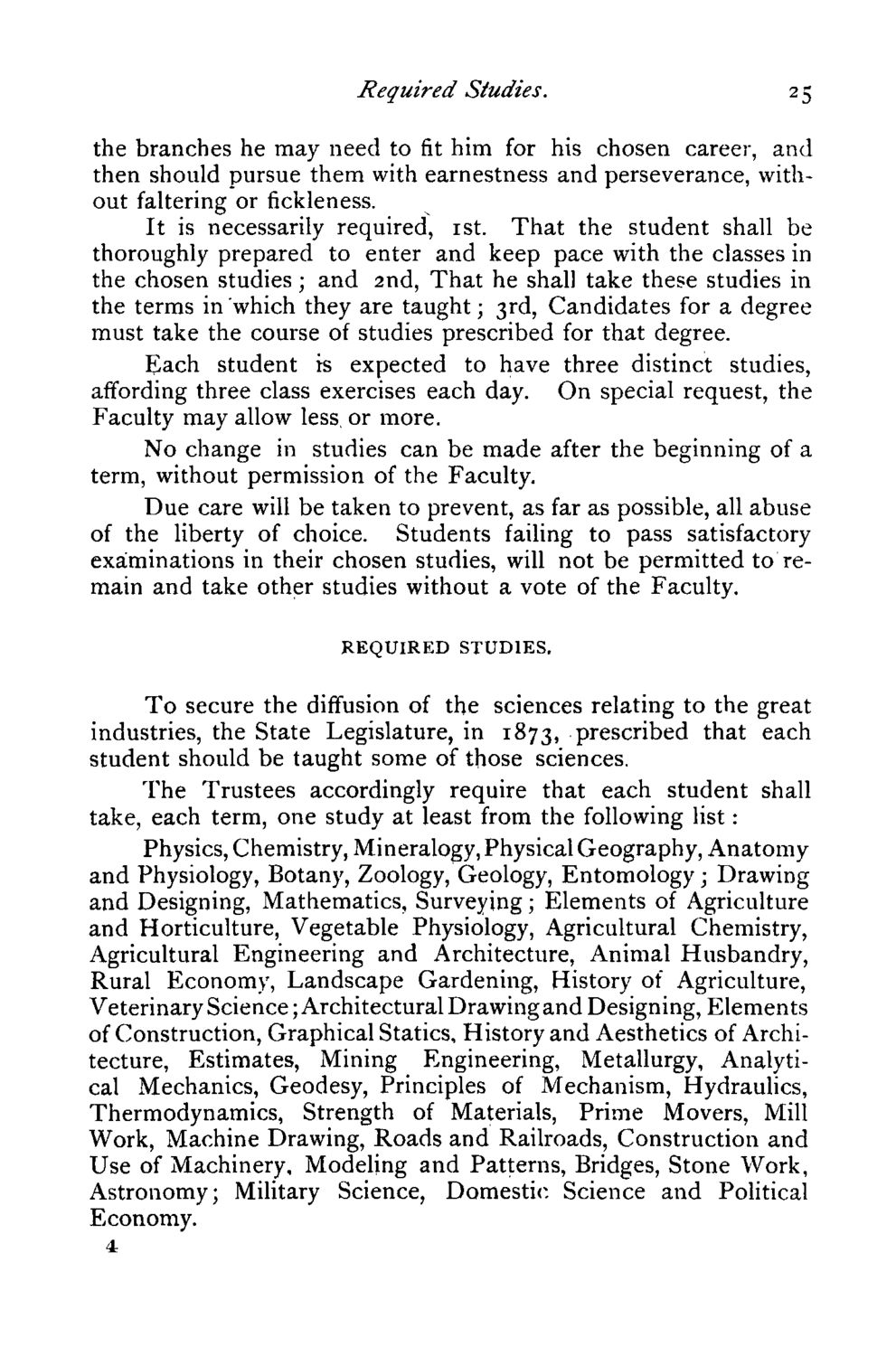| |
| |
Caption: Course Catalog - 1879-1880
This is a reduced-resolution page image for fast online browsing.

EXTRACTED TEXT FROM PAGE:
Required Studies. 25 the branches he may need to fit him for his chosen career, and then should pursue them with earnestness and perseverance, without faltering or fickleness. It is necessarily required, 1st. That the student shall be thoroughly prepared to enter and keep pace with the classes in the chosen studies; and 2nd, That he shall take these studies in the terms in which they are taught; 3rd, Candidates for a degree must take the course of studies prescribed for that degree. Each student is expected to have three distinct studies, affording three class exercises each day. On special request, the Faculty may allow less or more. No change in studies can be made after the beginning of a term, without permission of the Faculty. Due care will be taken to prevent, as far as possible, all abuse of the liberty of choice. Students failing to pass satisfactory examinations in their chosen studies, will not be permitted to remain and take other studies without a vote of the Faculty. REQUIRED STUDIES. To secure the diffusion of the sciences relating to the great industries, the State Legislature, in 1873, prescribed that each student should be taught some of those sciences. The Trustees accordingly require that each student shall take, each term, one study at least from the following list: Physics, Chemistry, Mineralogy, Physical Geography, Anatomy and Physiology, Botany, Zoology, Geology, Entomology; Drawing and Designing, Mathematics, Surveying; Elements of Agriculture and Horticulture, Vegetable Physiology, Agricultural Chemistry, Agricultural Engineering and Architecture, Animal Husbandry, Rural Economy, Landscape Gardening, History of Agriculture, Veterinary Science; Architectural Drawing and Designing, Elements of Construction, Graphical Statics, History and Aesthetics of Architecture, Estimates, Mining Engineering, Metallurgy, Analytical Mechanics, Geodesy, Principles of Mechanism, Hydraulics, Thermodynamics, Strength of Materials, Prime Movers, Mill Work, Machine Drawing, Roads and Railroads, Construction and Use of Machinery, Modeling and Patterns, Bridges, Stone Work, Astronomy; Military Science, Domestic Science and Political Economy.
| |